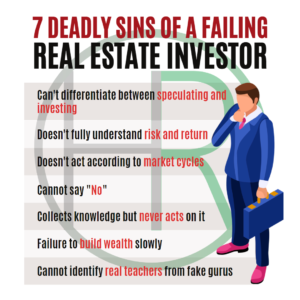Real estate is a significant aspect of the economy and plays a crucial role in both business and personal life. It’s a broad field that encompasses a variety of property types, including residential, commercial, industrial, and land. Understanding the intricacies of real estate can help individuals make informed decisions about where to live, work, and invest.
Residential Real Estate
Residential real estate is perhaps the most familiar to the average person, as it involves properties where people live. This category includes a wide range of property types, from single-family homes to large apartment complexes.
Single-Family Homes: Single-Family Homes are the most common type of residential property. They consist of standalone structures that house a single family. These homes can vary greatly in size, design, and price, depending on factors like location, construction quality, and market conditions.
Multi-Family Homes: These properties contain multiple separate housing units for residential inhabitants. Examples include duplexes, which have two units, and larger structures like apartment buildings. These properties can be a good investment, as they can generate rental income from multiple tenants.
Condominiums: Condos are similar to apartments, but instead of renting, residents own their individual units. All owners share responsibility for maintaining common areas and facilities.
Cooperatives (Co-ops): In a cooperative, residents don’t own their individual units. Instead, they own shares in a corporation that owns the building, and they have the right to occupy a unit.
Manufactured Homes: These homes are built off-site and then moved to their location. They can be more affordable than traditional homes, but they may not appreciate in value as much.
Vacation Homes: These are secondary residences that owners use for vacation or part-time living. They can be any type of residential property, and they’re often located in popular vacation destinations.

Real Estate For Sale
Commercial Real Estate
Commercial real estate involves properties used exclusively for business purposes. They’re typically owned by investors who earn income through rent paid by businesses that occupy the property.
Retail: This category includes shopping centers, malls, boutiques, and any other property where goods are sold to consumers. The value of retail properties depends on the quality and quantity of foot traffic they receive.
Office: These properties serve as workplaces for businesses. They’re often located in city centers or business parks. Office buildings can be classified as Class A, B, or C, depending on factors like their age, location, and amenities.
Hospitality: This category includes hotels, motels, bed-and-breakfasts, and other properties where people stay temporarily. The success of these properties depends on factors like location, quality of service, and the health of the travel and tourism industry.
Multi-Family: While multi-family properties are used for residential purposes, they’re classified as commercial real estate if they have more than a certain number of units. Owners earn income through rent.
Industrial Real Estate
Industrial real estate includes properties used for manufacturing, production, storage, research, and distribution of goods. These properties are often located outside of urban areas, close to major transportation routes.
Manufacturing: These properties are equipped for the production of goods. They may include facilities for assembly, processing, and packaging.
Warehouses: These buildings are used for storing goods. They’re crucial in supply chains, serving as distribution centers where goods are received, stored, and dispatched.
Flex Industrial: These properties combine office space with industrial space. They’re adaptable and can serve a variety of purposes.
Data Centers: These facilities house computer servers and related equipment. They’re essential for internet and telecommunications services.
Land
Land refers to undeveloped property with no buildings or structures. It’s a blank canvas that can be used for various purposes, from farming to residential or commercial development.
Undeveloped Land: This is land in its natural state, untouched by human development. It’s the most basic form of real estate, and its value depends on factors like location, size, and potential for development.
Infill Land: This is vacant land located in urban areas, surrounded by development. It’s often used for new construction in established neighborhoods.
Farms and Ranches: These are large parcels of land used for agriculture. Farms produce crops, while ranches raise livestock.

Land for Sale
Real Estate Investment
Investing in real estate can be a profitable venture, but it requires knowledge and understanding of the market. There are several ways to invest in real estate:
Direct Purchase: Buying a property and earning income through rent or selling the property for a profit.
Real Estate Investment Trusts (REITs): These are companies that own or finance income-producing real estate. Investors can buy shares of REITs on the stock market, similar to how they can buy shares of a company.
Real Estate Mutual Funds: These are investment vehicles that pool money from many investors to buy properties or property-related assets.
Real Estate Exchange-Traded Funds (ETFs): These are funds that track real estate indexes and are traded on major stock exchanges.
Real Estate Market Factors
Several factors can influence the real estate market:

Home for Sale
Economic Conditions: The overall health of the economy plays a significant role in the real estate market. Factors such as employment rates, wage growth, and interest rates can influence demand for real estate.
Location: The location of a property is one of the most critical factors in its value. Properties in desirable locations, such as city centers or near amenities like schools and parks, tend to have higher values.
Supply and Demand: The real estate market is influenced by the balance of supply and demand. If there are more homes for sale than there are buyers, prices may drop. Conversely, if there are more buyers than homes for sale, prices may rise.
Government Policies: Government policies and regulations can impact the real estate market. For example, tax credits or deductions for homebuyers can stimulate demand.
Real estate is a complex and multifaceted field that offers opportunities for living, working, and investing. Whether you’re buying a home, renting an office space, or investing in a REIT, understanding the basics of real estate can help you navigate the market and make informed decisions.
- List View
- Map View
- Grid View
-
-
Lot Size
-
Home Size1,071 sqft
-
Beds2 Beds
-
Baths2 Baths
-
Year Built1974
-
Days on Market0
-
-
-
Lot Size2.27 ac
-
Home Size
-
Beds
-
Baths
-
Year Built0
-
Days on Market0
-
-
-
Lot Size
-
Home Size1,060 sqft
-
Beds2 Beds
-
Baths2 Baths
-
Year Built1993
-
Days on Market0
-
-
-
Lot Size12,633 sqft
-
Home Size4,084 sqft
-
Beds5 Beds
-
Baths4 Baths
-
Year Built1998
-
Days on Market0
-
See all Real estate matching your search.
(all data current as of
4/28/2024)
Listing information deemed reliable but not guaranteed. Read full disclaimer.











